Arnaud Benedetti is an associate professor at the University of Paris-Sorbonne and editor-in-chief of the Political and Parliamentary Review. He published
How are the politicians dead?
- The great malaise of power
(editions of Cerf, 2021).
FIGAROVOX. - The latest issue of the
Political and Parliamentary Review
focuses on “The metamorphosis of clerics”.
This title echoes
La Trahison des clercs
by Julien Benda (1927), who criticized intellectuals for having deserted reason to take refuge in ideology.
Almost a century later, has the situation changed?
Arnaud BENEDETTI. -
It changed because first the story went through it.
This does not exclude that ideology is still at work in the work of certain intellectuals.
But it must be accepted as an incompressible datum with which we must reckon because the world of ideas is that of visions of the world and that unless we conform to a single model of thought, allegedly exclusively rationalized but also not devoid of ideological lineaments, it is clear that we are all woven, including and perhaps starting with the intellectuals, of preconceptions and prejudices that can form a system and guide both our actions and our thoughts.
The fundamental problem is when this foundation becomes systemic, systematic, to the point of sending any alternative, contradictory argument into the abyss of a fantasized evil, of an irreducible enemy that must be hated and eliminated.
This intolerance can still operate in the intellectual field.
Thus one of the figures of the intelligentsia of the extreme left to whom we proposed to intervene in this dossier literally "agonized" us with insults.
However, the meaning of a journal like the
Revue politique et Parlementaire
is to promote confrontation in a reasoned and respectful form of opponents.
The coordination of this file drawn up by personalities as diverse as Virginie Marin, Francois-Bernard Huygues, Alexis Lacroix and Gaël Brulé illustrates in action this desire for editorial openness.
But all intellectuals are not necessarily beings of reason, just as not all beings of reason are necessarily, far from it and very fortunately, an intellectual.
To go even further ahead of your questioning, the transformations of the intellectual landscape are inseparable from three factors: the collapse of the great totalitarian eschatologies which leads to revisiting the future in a doubtless more modest way, the diversification of professions in the minds that are upset by the processes of this division of labor which Émile Durkheim made at the beginning of the 20th century one of the engines of social dynamics, the media developments which in recent years in particular modify and broaden in the end what we calls the public space, this primordial scene of debate and the construction of public opinions.
Obviously, the committed intellectual who deploys his magisterium above all the public space no longer has the same influence as in the past: decline of general culture among the elites, increased specialization of the functions of knowledge and of knowledge with the emergence of new figures, relativism of values, are all parameters that can explain this decline.
Arnaud Benedetti
Christophe Charle analyzes in an article the evolutions of the intellectual since the Dreyfus affair. What distinguishes today's intellectual from that of the end of the 19th century?
The contribution of Christophe Charle indeed opens the file;
it was a question both of grasping the genesis of this figure, the intellectual, who has not always existed, notwithstanding the presence of clerics which crosses the history of humanity;
its disposition or not to export because the intellectual in its contemporary sense is born in France in a specific context, that of the Dreyfus affair, and its origin obeys in its beginnings a pejorative characterization aimed on the part of its initiator, Maurice Barrès, to denounce the Dreyfusard party - which Alexis Lacroix recalls in his contribution;
its metamorphoses (this is the explicit title of the dossier and of the analysis project that bears the latter) with regard, among other things, to the growing diversity of the channels of expression at the
Perhaps we should dwell for a few moments on the elements that originally identify what is called the intellectual;
they are mainly of three types: an intellectual has knowledge, a capacity to question opinions, a system of values that he intends to defend publicly.
Christophe Charle explains, among other things, that among the factors facilitating the emergence of intellectual commitment at the crossroads of the 19th and 20th centuries, we find the rise in power of positivism and scientific thought, the academic structuring of knowledge within universities, the development of literacy and the written press, the enhancement of literary culture among the elites, the independence of the intellectual field from political power, but also the tension that persists between these two spheres, including in liberal regimes such as France where institutions, such as the army during the Dreyfus affair, remain imprinted in their ruling spheres with a culture resistant to political liberalisation.
Be that as it may, the cultural impregnation of the model of the committed intellectual remains uneven depending on the country: strong in Italy and Spain, especially for the latter with "the generation of 1890", more relative to the United Kingdom probably due to a broader consensus around the political regime, as in Germany, due to less fluidity between the various constituent categories of actors of thought or a more authoritarian state before the First World War world.
Obviously, the committed intellectual who deploys his magisterium above all the public space no longer has the same influence as in the past: decline in the culture of letters and general culture among the elites, increased specialization functions of knowledge and learning with the emergence of new figures (experts, researchers, etc.), relativism of values, are all parameters that can explain this decline.
However, there are still intellectuals who strive to produce a global and questioning voice.
This is the case, among others, of Michel Onfray who gives an interview to the Revue to criticize the pretense inherent in anti-conspiracy or of Pierre-André Taguieff who analyzes this "eternal return" that leftism constitutes in his eyes. cultural.
Literary writing now faces competition from other formats, which are often more trivial, less developed, but more efficient with regard to the media-digital ecosystem.
Arnaud Benedetti
You say at the end of your editorial that the intellectual no longer exists. Has he really disappeared? You speak of a “triple disenchantment of the intellectual”. What do you mean ?
Once again, the observation does not certify the disappearance of intellectuals but the reflux of an exclusive representation of the intellectual through the somewhat prophetic, dominant, even overwhelming figure of the committed intellectual, a world-intellectual in the Sartrean mode. or Camusian who sweeps the society of his time with the lighthouse of his commitment by using all the resources of writing to express himself (the philosophical essay, the novel, the short story, the theater, the press article) and which sets itself up as a moral conscience whose vocation is to appeal to public opinion.
This provision remains no less pluralistic, as demonstrated by the Sartre/Camus opposition or the Sartre/Aron opposition,
This total intellectual tends to fade away or failing that to lose its capital, its aura, to put it another way.
And if there is indeed disenchantment, it is because of three factors: the intellectuals have also gone astray a lot, mainly the most peremptory politically like Sartre, even Foucault - which does not detract from the density of their works.
This is a first disenchantment, even if other thinkers, Camus or Aron, were right in their time.
The second factor is inseparable from the mutation of the intellectual field which sees the latter opening up to other words, those of experts and researchers, who participate in the circulation of ideas and the questioning of societies.
The situation is no longer fundamentally monopolistic, which is not without its problems.
Alain-Gérard Slama sees in the emergence of experts, among other things, a risk which, under the guise of expertise, nevertheless conceals questionable undertakings: "
the essence of the discourse of expertise
, he writes,
is that it does not know no limits
”.
Moreover, this significance of expertise settles in its technocratic format on the other side of the public space that constitutes, alongside the intellectual field, the political field.
In this dossier, Frédéric Rouvillois on the one hand and Arnaud Teyssier on the other hand retrace its history and underline its outlines which objectivise a certain form of dispossession of politics to the detriment of elected officials and peoples.
Third factor of disenchantment, the forms of expression, the literary writing in priority, notwithstanding the requirement which it supposes and its eminently qualitative dimension, is from now on competing in matters of communication by other formats, often more trivial, less developed, but more efficient with regard to the media-digital ecosystem: the image obviously but also the tweet, an evolution mentioned by Philippe Guibert in his contribution around the subject of the media intellectual and the dotted emergence of a digital intellectual.
Postmodernity favors specialists, it segments knowledge, diffracts, far from the universalisms of yesteryear.
Arnaud Benedetti
Are there no more intellectuals or are there too many? Is it the trivialization of the figure of the intellectual that leads him to his downfall?
What is at stake is the relationship to the humanities first.
The latter are no longer valued as they were in the training of elites, now in favor of more technical subjects.
Allan Bloom in the 1980s had already alerted in a famous essay
The Disarmed Soul
to this progressive abandonment.
The clerks were nourished by the book, they are today partly the products of technical knowledge which testify to the extension of what Jacques Ellul had called the “
technical system
”.
As early as the 1930s, another thinker, the Spanish philosopher Ortega y Gasset, had pierced
this evolution of modern man in his book
La Révolte des masses
by distinguishing in hyper specialization a trend that is at once new, heavy and worrying. “
He is a man who, of all that one needs to know to be a cultured character, knows only one specific science, and even then only really possesses that tiny portion of it that interests his personal investigations
.
And he comes to consider as a virtue the fact of not occupying himself with all that remains outside the narrow domain that he cultivates more especially, and treats as dilettantism any curiosity for the body of knowledge
”.
The silo has become somewhere a category of thought as if from now on, to strive to think the totality or in dynamics, had become inaccessible to man.
Postmodernity thus favors specialists, it segments knowledge, diffracts, far from the universalisms of yesteryear.
But we need, proof against the threats of the dislocation of societies, a way of thinking that is also able to pick up and embrace in order to connect what every day seems to dissociate a little more.
We are not suffering from a trivialization or an overproduction of intellectuals but from a drying up of a source which produced, from the Enlightenment in particular, generalist transverse thinkers capable of seeing high and far, even if they could sometimes make a big mistake.
This commodity has become rare where expertise continues to extend its imperium because expertise is nothing other than the ideology of technique and the problem with technique is that it tends to develop independently of humans or by reducing humans to an adaptation variable.
François Bernard Huygue quotes Gramsci: “
every man is an intellectual, but not all men in society fulfill intellectual functions
”.
Have social networks led to an explosion in the number of "intellectuals" or people who consider themselves as such?
François-Bernard Huygue, who coordinated this file, indeed quotes Gramsci who himself has reflected a great deal on the question of the intellectual in his relationship to society and politics.
The Gramscian dichotomy (traditional intellectual/organic intellectual) still makes sense, notwithstanding its initial limits inherent in any form of classification.
The mediological approach favored by François-Bernard Huygue aims to understand how media devices transform in their evolution the intellectual landscape, its conditions of production and reception.
However, this implies questioning the fundamental elements that underpin intellectual legitimacy.
It is not enough to make general ideas visible to gain intellectual status;
it is still necessary to rely on knowledge,
The digital space maintains an optical illusion because it has considerably lowered the cost of entry for everyone in the public space, but it can also make it possible to circumvent - among other things through self-publishing - the filters of access to the space for the production and visibility of ideas.
This short-circuit operated by the technique creates this scattering: "
to produce general ideas, to publish them and to transform them into influence: all the functions of the intellectual are as if scattered and it is not complexity that wins there
concludes François-Bernard Huygue.
The fact remains that beyond the phenomenological issues, the intellectual is first of all the one who is able to access a certain stage of abstraction, and this capacity is independent of the forms of mediation, except limit the substantive "intellectual" to its original dimension.
The great challenge for intellectuals is undoubtedly to reclaim this ability to create the future.
Arnaud Benedetti
Olivier Rey analyzes in an article the paradoxical relationship between the intellectual and science and technological progress. In a world that is becoming more complex, is the intellectual doomed to give way behind the expert?
Olivier Rey, like other contributors (Rouvillois, Teyssier, Béjean, Slama, etc.) analyzes this assumption of expertise.
But he leans on the genesis of the phenomenon, from the moment he takes into account what we can call the techno-scientific revolution, which shakes the continuum between experience inherited from the past and projection relative to the horizons of expectation.
The acceleration of technoscientific advances has modified the past/future regime, the first no longer exclusively guiding the behavior of men and the second calling on a particular class of clerics to think it through in order to organize it.
But what Olivier Rey draws is none other, following Ellul already mentioned, than a universe where the
The clerk in his aptitude not only to decipher but to propose modes of regulation of this future is jostled by this permanent revolution whose autonomy devours him for the benefit of the experts, once again, who are exclusively engineers of the system at the service of the system.
It is in a way the Cartesian ideal of man "
master and possessor of nature
who finds himself shaken.
Virginie Martin and Gaël Brulé also explain how much research itself, now subject to imperatives of expertise, productivity and performance in the service of the technical system, does not escape this “great transformation”.
The great challenge for intellectuals is undoubtedly to reclaim this ability to create the future.
The health crisis has unfortunately shown that the game was not won as consulting firms have inspired public policies more than thinkers who could worry, among other things, about the brutal suspension of many of our fundamental freedoms.
"The metamorphosis of clerics" Political and parliamentary review

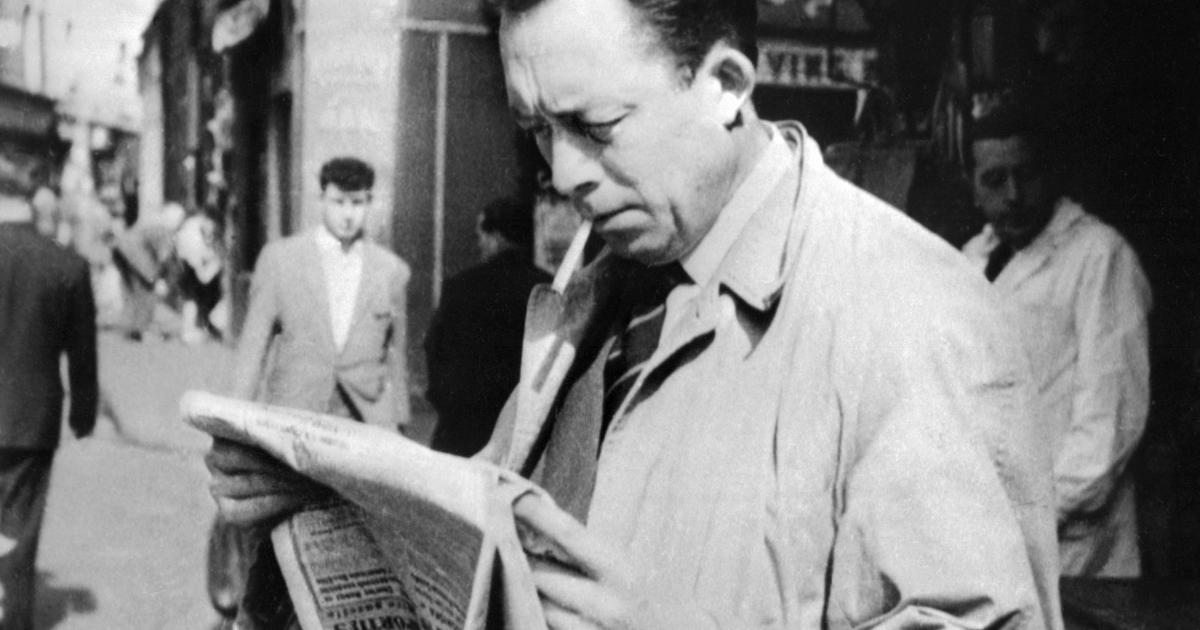
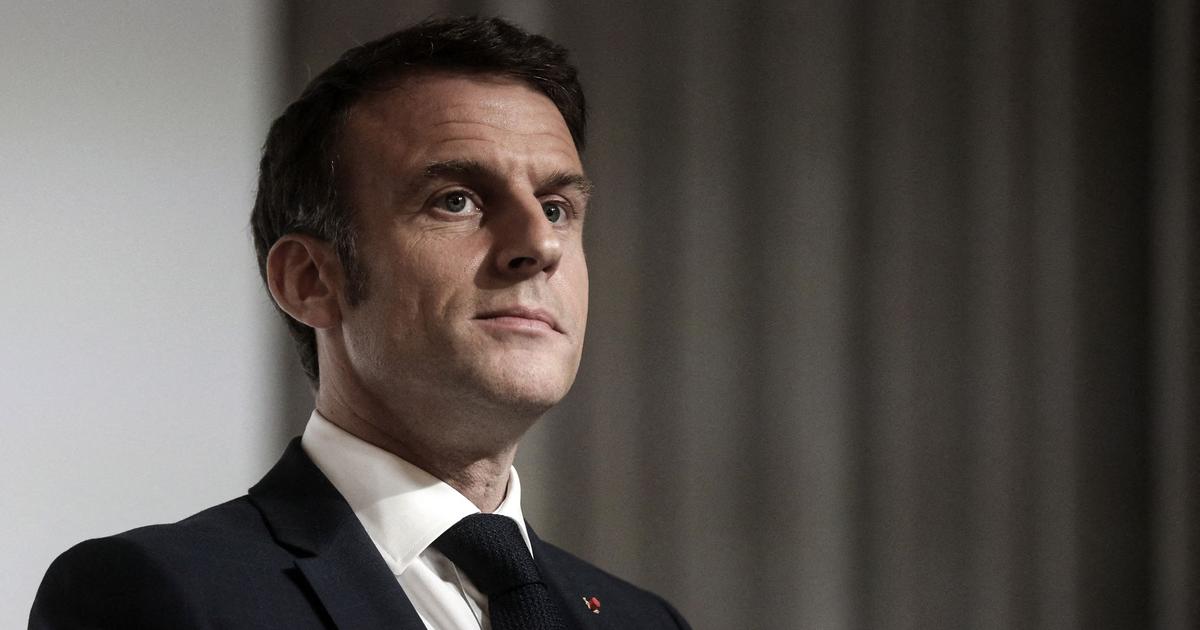
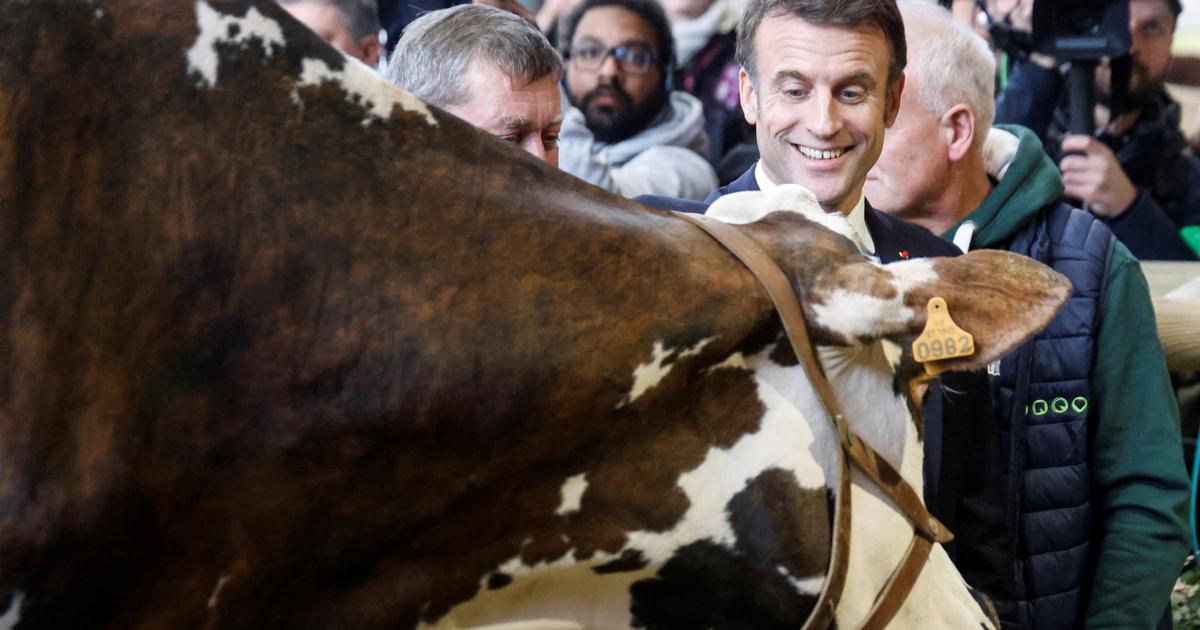
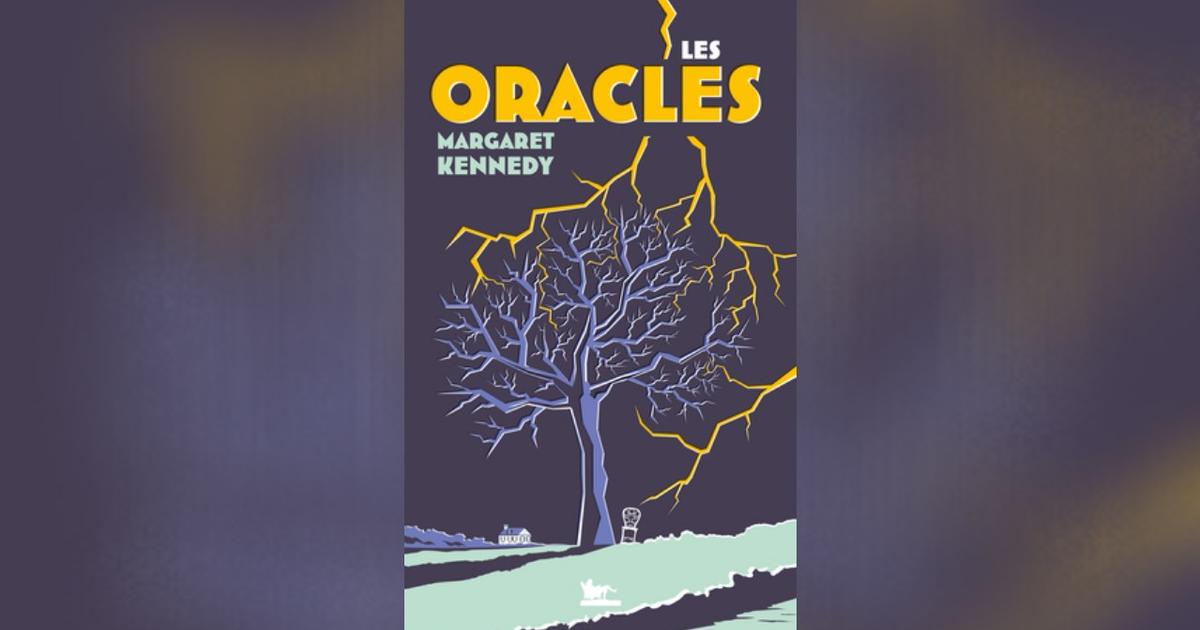


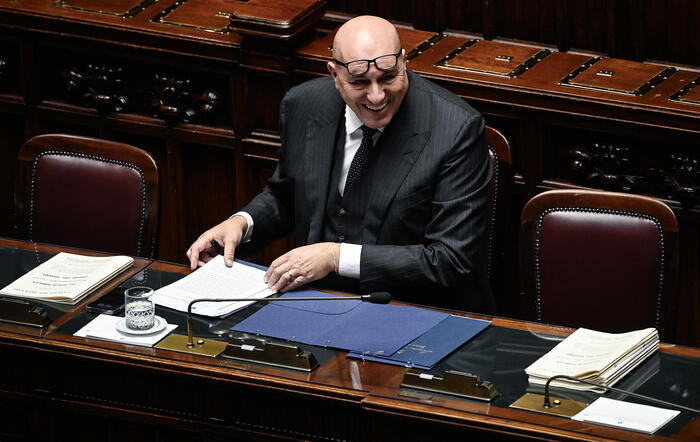
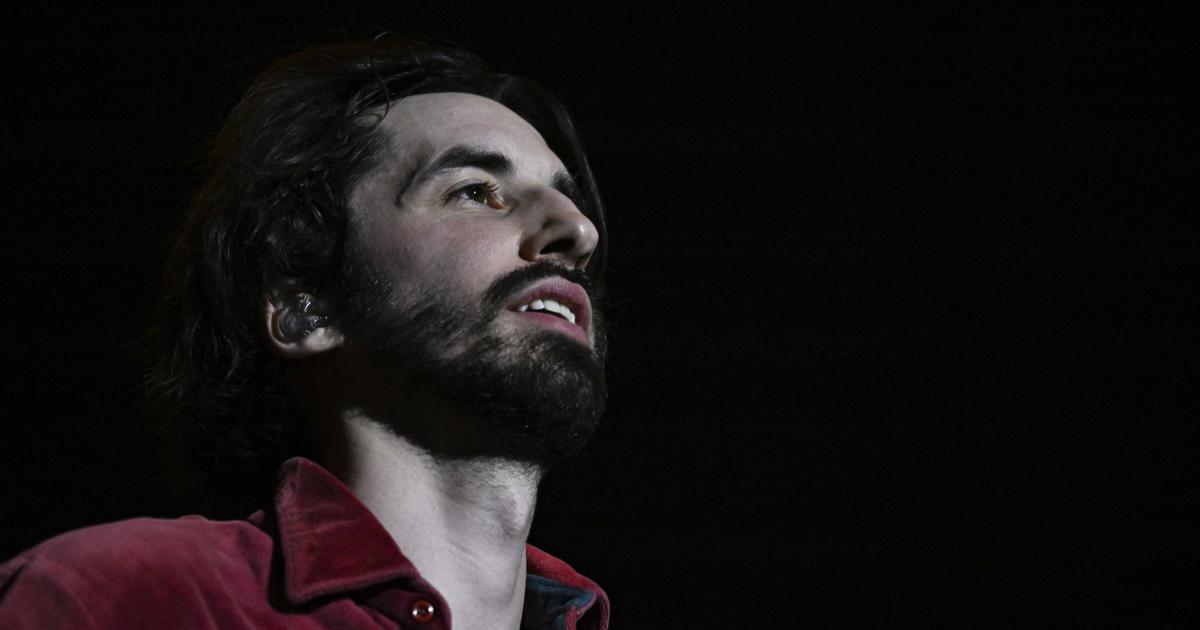



/cloudfront-eu-central-1.images.arcpublishing.com/prisa/KMEYMJKESBAZBE4MRBAM4TGHIQ.jpg)


